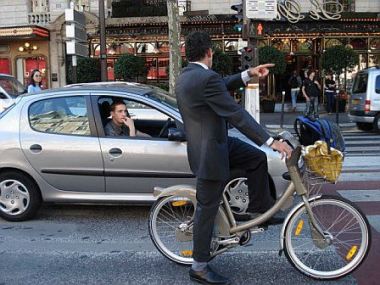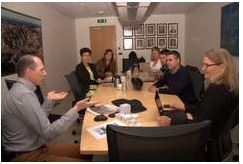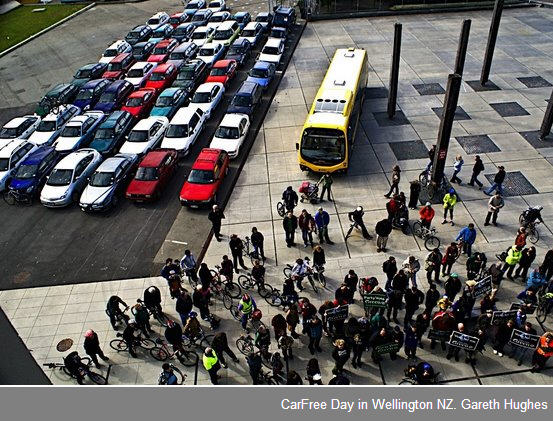 As original organizers of the World Car Free Days movement, we are always attentive to finding ways to make real use out of these generally festive occasions. We have been working consistently on this task since the first program announcement in Toledo Spain at a major European conference in October 1994 under the title of “Thursday: A breakthrough strategy for reducing car dependence in cities“. (See http://wp.me/psKUY-U9)
As original organizers of the World Car Free Days movement, we are always attentive to finding ways to make real use out of these generally festive occasions. We have been working consistently on this task since the first program announcement in Toledo Spain at a major European conference in October 1994 under the title of “Thursday: A breakthrough strategy for reducing car dependence in cities“. (See http://wp.me/psKUY-U9)
This year we propose that considering cities may give some thought to the possibility of organizing on a pilot basis a special core Car Free Day event — specifically intended to examine, encourage and support cycling in cities. This makes sense: a Car Free Day is seen as an occasion to step back and think together about how your city is doing in the challenging transition from an essentially private car-based to an equitable and efficient mobility-based society. With this in mind we are proposing at the core of the other planned CFD events this year the tool of a “Civil Society State of City Cycling Audit” — in order to provide independent background and perspective on the state of safe and abundant cycling in their city. The following posting sets out the latest proposal for this “collaborative citizen self-audit”.
















